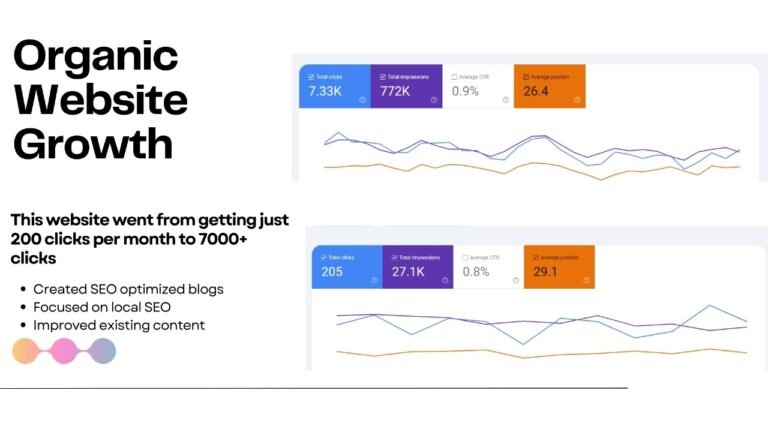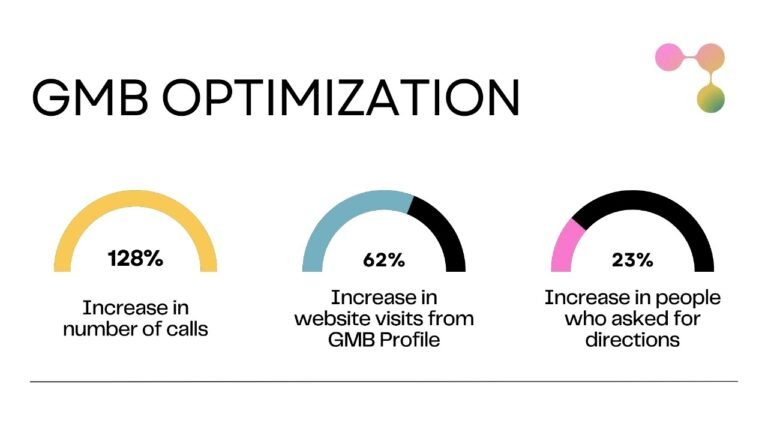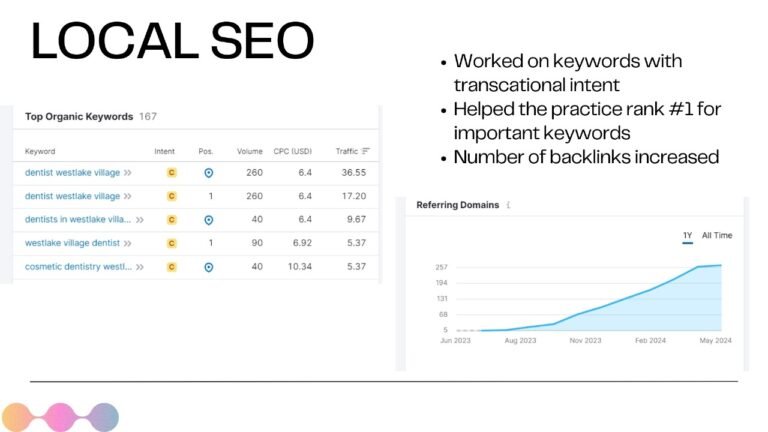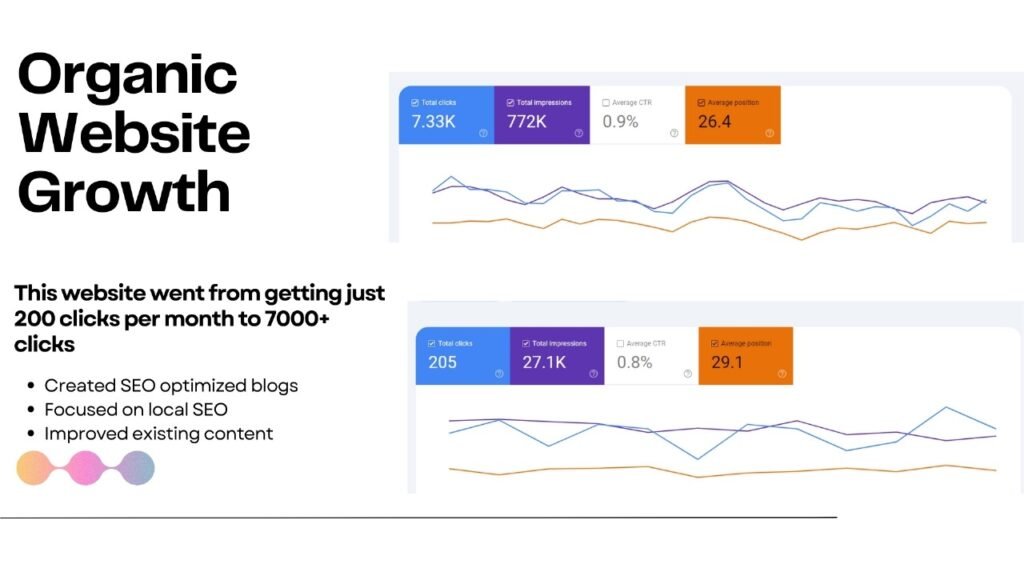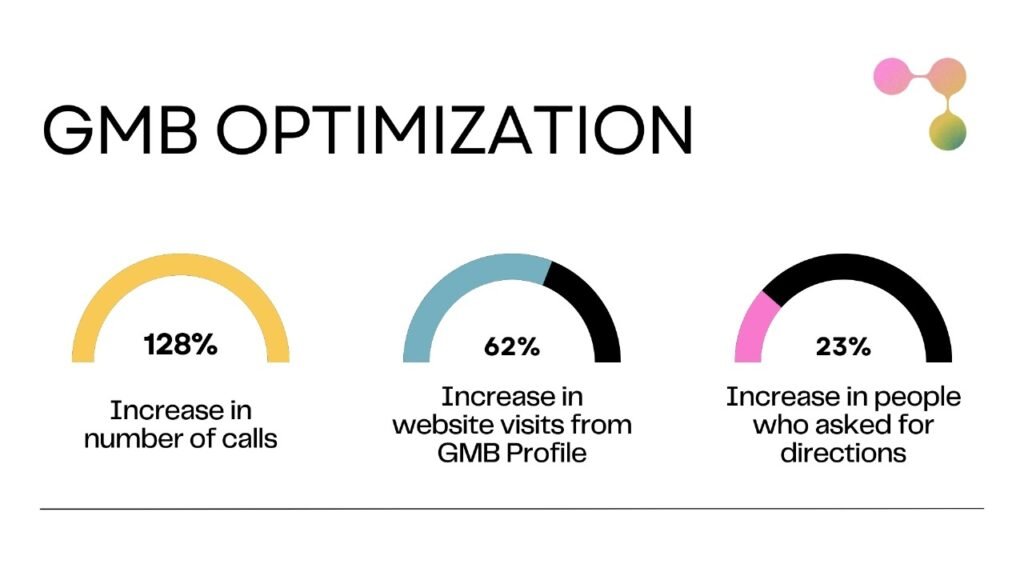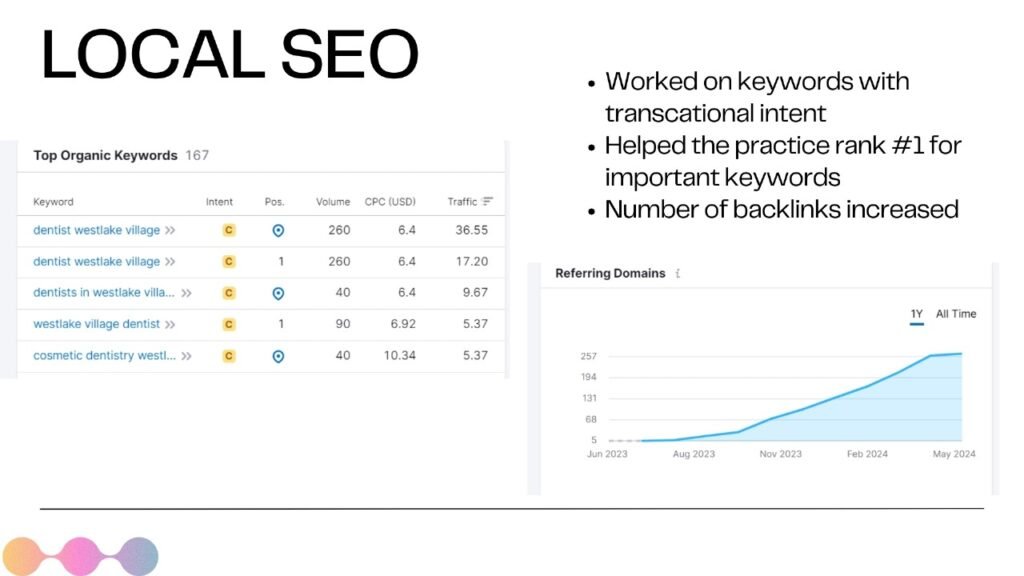Local SEO is influential for small businesses.
Without proper local SEO optimization, you risk missing out on a significant pool of potential customers actively searching for businesses in your area. Simply put, local SEO is crucial for maintaining your business’s relevance and visibility within your local market.
To help you with the knowledge and tools needed to succeed, we’ve compiled a comprehensive guide packed with local SEO tips and tricks. This guide will equip you to optimize your online presence and attract ready-to-buy customers searching nearby.
What is local SEO?
Local SEO (Search Engine Optimization) increases search engine visibility for local businesses, especially those with physical locations. By sticking to local SEO best practices, businesses can increase organic traffic from searches conducted by nearby customers.
Search engines utilize signals like local content, social profile pages, links, and citations to deliver the most relevant local results. These elements help search engines gather the necessary information for local searches.
By implementing local SEO, businesses can strategically position their products and services to attract local prospects and customers actively searching for them.
Follow this Local SEO Tips to Rank #1 in your Area
Google Business Profile
Claim and optimize your Google Business Profile, previously called Google My Business. Doing so allows customers to easily find your business’s details, such as its address and phone number, and improves your visibility in search results.
Ensure Consistent NAP
NAP, which stands for Name, Address, and Phone Number, is a fundamental element of local SEO. Search engines like Google and Bing heavily rely on accurate and consistent NAP information to verify your business’s legitimacy and location.
NAP forms the foundation of local SEO. Accurate and consistent NAP information across the web can greatly increase a business’s chances of ranking high in local search results. Similarly, inaccurate or inconsistent NAP details can confuse customers, create a poor user experience, and damage consumer trust in the business.
Mobile-friendly
According to a report, over half of all Google searches are conducted on smartphones and tablets!
This means that prioritizing mobile optimization for your website is no longer optional – it’s essential for local SEO success.
Search engines like Google understand this shift in user behavior and prioritize mobile-friendly websites in their local search rankings. If your website isn’t optimized for mobile users, search engines are less likely to recommend your business to local customers searching on their phones.
By ensuring your website offers a smooth mobile experience with fast loading times, clear navigation, and easy-to-read content, you’ll be well-positioned to capture these valuable local leads and convert them into customers.
Create Local Content
Google prioritizes user-friendly content now. Target local audiences with industry news, events, and educational content on your blog. Skip generic sales pitches. Focus on building trust and attracting qualified leads by showcasing your expertise and local involvement.
Local links
To increase your local SEO ranking and attract more customers searching nearby, building strong local links is crucial. Google uses these links as a signal of your business’s relevance and trustworthiness within your local area. There are two key ways to achieve this:
First, focus on getting listed in local directories, business associations, and relevant websites in your city or region. Think of online Yellow Pages, local chambers of commerce, or industry-specific directories. These listings not only provide valuable backlinks but can also be a source of direct traffic from potential customers searching for businesses like yours.
Secondly, target “anchor text” with geographic terms when others link to your website. Anchor text is the clickable text within a hyperlink. By encouraging websites linking to you to use anchor text that includes your location (e.g., “best plumber in [your city]”), you send a stronger local SEO signal to search engines.
Optimize URL, Title Tags, Headers, Meta Description
Each new post creates a fresh page for search engines to index, offering a new opportunity to target local keywords and climb search rankings (SERPs).
Optimize your content for local searches by strategically incorporating high-volume keywords with geographic terms throughout your website. Target these keywords in your URL, title tags, headers, meta descriptions, and within the body content itself.
Stuck for local content ideas? Showcase your success! Highlighting customer testimonials and case studies from your local area not only provides valuable content but also demonstrates your expertise to potential customers searching nearby.
Pro Tip: Get specific! The more details you include about your service area within these website elements (especially for businesses with multiple locations), the better you’ll rank in “near me” local searches.
Citations
Finding your business online should be a breeze for potential customers. Citation builders can help streamline this process by automating the creation of local citations. These citations are essentially online mentions of your business name, address, and phone number (NAP) across various directories and websites.
Keyword Research
Find the keywords people use to search for your business locally. Here are some examples:
- Industry keywords: Words describing your overall industry (e.g., “plumber”).
- Local keywords: Include your city/region (e.g., “[city] plumber”).
- “Service in location” format: Target searches like “[your service] in [your city]”.
Use such keywords throughout your website and listings to improve your local SEO ranking.
Perform Regular Local SEO Audits
Local SEO isn’t a one-time fix. It’s a continuous process that requires regular monitoring and adjustments. They help you catch problems early to avoid sinking your local search ranking.
SEO Audits also uncover hidden opportunities to get ahead of competitors and stay on top of the latest trends. Skipping these audits lets issues fester, hurting your search visibility and making it harder to compete.
Engage your Local Community.
Actively participating in your community builds positive digital repute. Partner with a charity, organize volunteer events, sponsor local happenings (online or off!), or share your expertise with the media. These actions can all lead to positive press mentions, increased brand awareness, and valuable links to your website.
Wrapping Up
By implementing the strategies outlined here, you’ve taken a significant step towards increasing your local presence. You’ll be well on your way to attracting customers searching for your services nearby, building brand recognition, and establishing yourself as a local authority.
Ready to take the next step? Consider consulting with a local SEO expert to tailor a strategy specific to your unique business needs.
We hope you found this information helpful!

